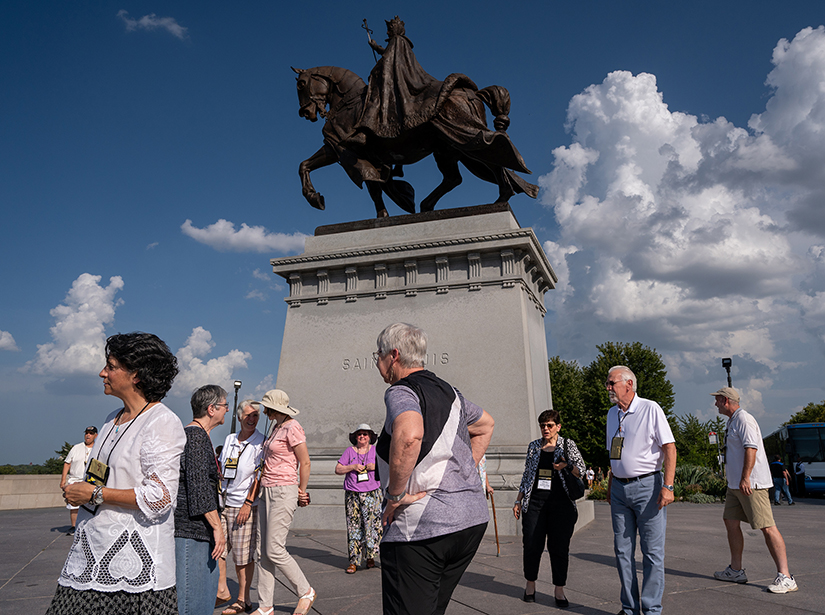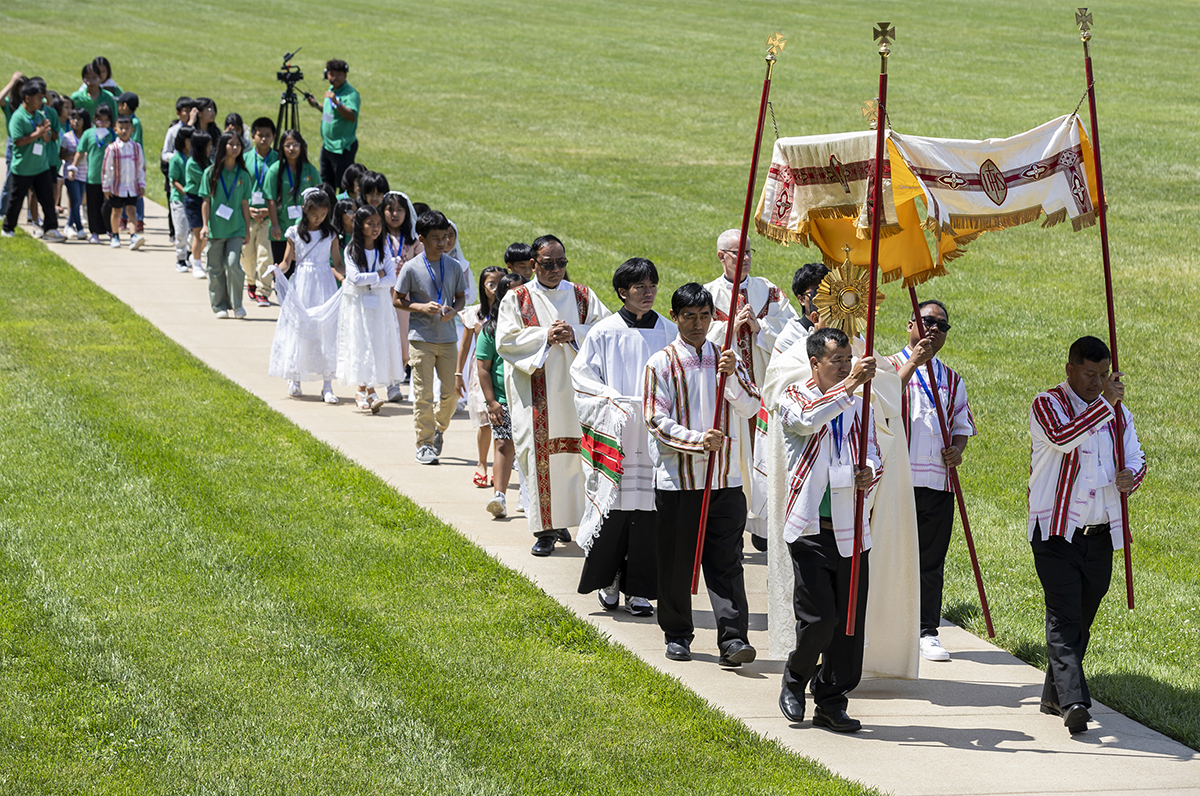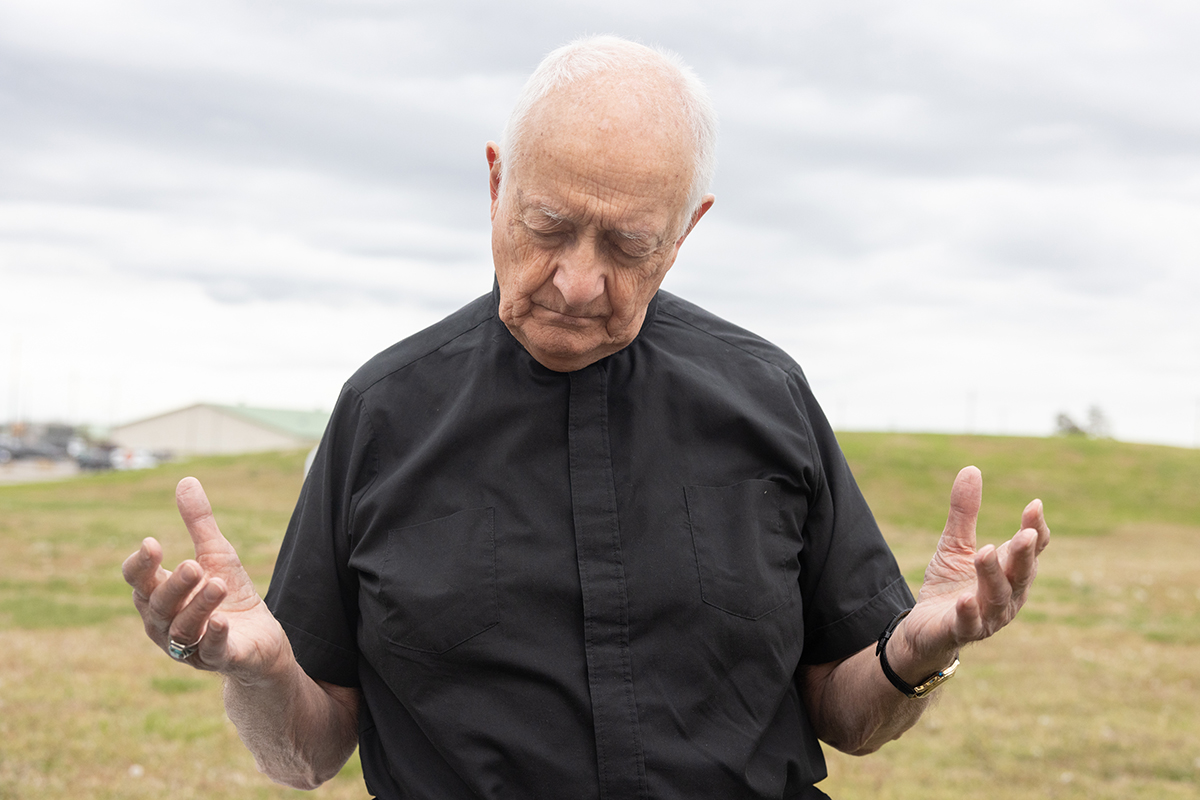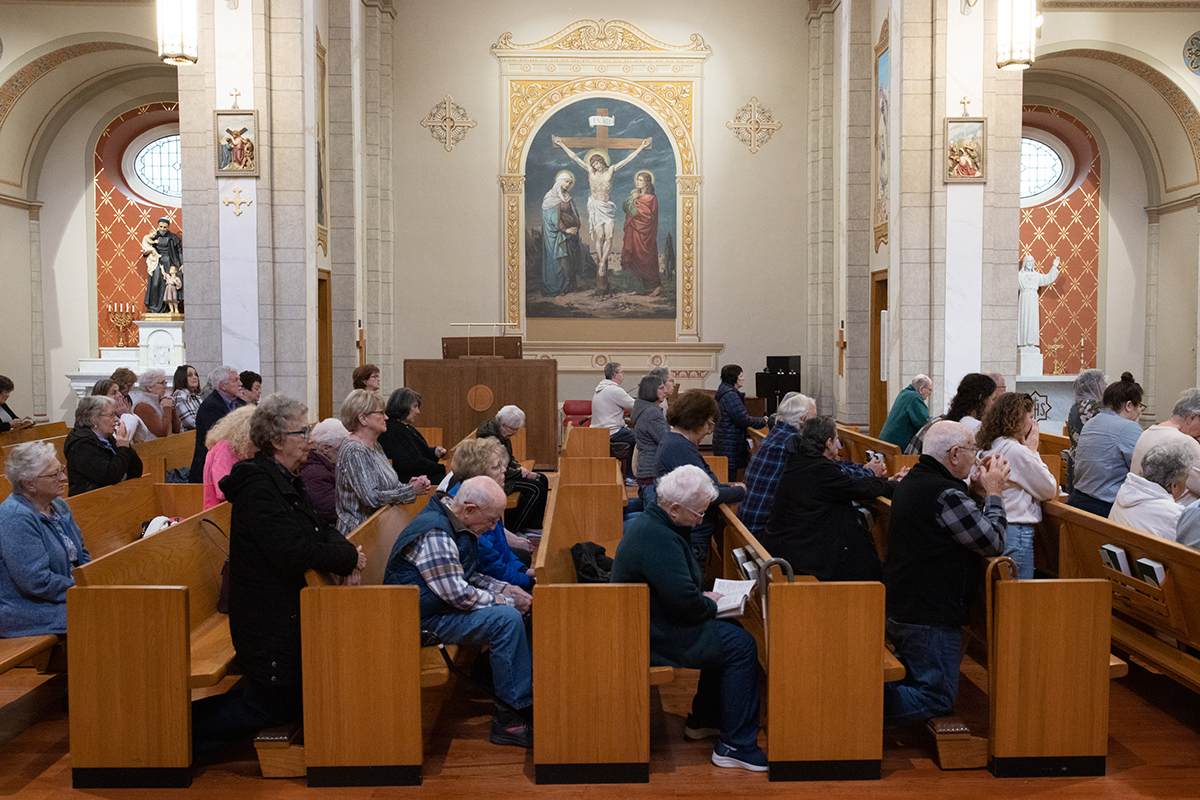Secular Franciscans are called to embrace the Gospel in the ordinary circumstances of their lives

Third Order founded by St. Francis counts St. Louis IX as member of their ranks
The feast day of St. Louis IX, King of France, is special for the Secular Franciscans, especially those from St. Louis.
That’s because it’s an occasion to remember that they once had a king within their ranks.
St. Louis (1214-1270) lived during the same time as St. Francis of Assisi (1181-1226), who founded the Third Order of St. Francis more than 800 years ago. Louis also became a professed member of the Secular Franciscans, then known as the Brothers and Sisters of Penance, and received the habit.

The community was designed for ordinary people who wanted to join Francis’ order (the Franciscan Friars, or First Order). St. Francis counseled them not to leave their families or abandon their work in the world but instead to embrace the Gospel in the ordinary circumstances of their lives. They fulfill a Rule of Life and follow the Franciscan charisms as they continue their vocations in marriage, parenthood or the single life.
While there’s little known about St. Louis’ day-to-day involvement with the Secular Franciscans, his life reflected what members today continue to strive for in their daily lives: to seek God in all they do, with particular care for others, including the poor. Rooted in prayer, the community focuses on peace, justice and care of creation.

“A lot of people were following Francis in (Louis’) day — it was the thing to do,” said Jan Parker, a member of Immaculate Conception Parish in Dardenne Prairie and a professed Secular Franciscan for 37 years. “He was way ahead of his time with the laity. He prayed the office every day, he went on retreats and he was good to the poor.”
St. Francis is the only religious founder who founded a Third Order as a spiritual path for lay people. There are about 11,000 professed lay men and women and some diocesan clergy in the United States who are Secular Franciscans.
Parker is part of the San Damiano Fraternity in O’Fallon, one of four Secular Franciscan fraternities (one of which is emerging) in the Archdiocese of St. Louis. Secular Franciscans meet regularly with their fraternity for prayer, ongoing formation, ministry, fellowship, retreats and service. They also live out their calling to the Franciscan life in their homes and families, at work, in their parishes and the world.
After a period of formation, typically three years, members make a simple profession to a Rule of Life based on the one that St. Francis of Assisi wrote in 1221. The rule has been updated over the centuries, most recently revised and approved by Pope St. Paul VI in 1978, but it remains true to St. Francis’ vision for the “Order of Penitents.”

Following in the footsteps of St. Francis is a way of being, said Christine Blood, a member of St. Gerard Majella Parish in Kirkwood who belongs to an emerging fraternity based at the Tau Center in Kirkwood. “Our goal in life is to have a deep closeness, a relationship with Jesus,” she said. “This deepens my relationship with Jesus, following Jesus in the footsteps of St. Francis. It’s taking your commitment to faith and spirituality to the next level.”
The Franciscan charism means having joyfulness while being open to life’s possibilities and looking for God’s presence in everything, said Blood, regional minister for the St. Clare Region, which includes the territory of the Archdiocese of St. Louis. “People attribute him to the St. Francis statues and the earth and that’s great. But he wasn’t about the birdbaths — he was about seeing God in everything and allowing God to take care of you in all of your concerns. That’s very Franciscan.”
People in St. Francis’ time thought of him as radical, Parker said. The upper class and the poor existed; a middle class was evolving. Francis’ family had a successful business, but he chose a different path.
“He left everything,” Parker said. “He completely stripped himself of his inheritance, he stripped of his clothes, and he said, ‘I’m going to live the life of poverty, because Christ lived poverty.’”

Being part of the Secular Franciscans allows its members to bring the Gospel joy to everyone they encounter, said Jane DeRose-Bamman, the national minister for the Secular Franciscan Order USA.
“It may be a co-worker or a family member, or it may be someone you encounter in the grocery store,” she said. “We’re called to be evangelical and fraternal. The Gospel is filled with joy, and while some people think it might be full of rules, it’s freedom, it’s joy, it’s a life of mercy. The definition of the Franciscan charism is the Gospel.”
>> St. Louis’ Franciscan values
The following is an excerpt from a letter from Encarnación del Pozo, minister general of the international Secular Franciscan Order, commemorating the 800th anniversary of the birth of St. Louis, King of France, in 2014:
This year we celebrate the “8th Centennial of the birth of St. Louis,” whom the Church has named patron and model of life for the “Third Order” regular and secular.
Brothers and sisters on venerating the figure of our co-patron St. Louis, King of France, let us keep the values that he lived present in our minds and in our hearts:
• As ruler, committed to justice and peace, when today we live in a world devastated by violence, corruption, selfishness and growing ego. He knew how to care for the spiritual and temporal well-being of his subjects.
• As loving son and obedient to the path indicated by his mother for his own well-being and the well-being of the kingdom of France, and, although respectful, when the time came, he acted decidedly in government, personal and family matters;
• As loving, passionate and faithful husband. Margarita and Louis had 11 children;
• As loving father, educator of his child in the faith, righteousness and austerity, respecting them as persons. Assuming suffering with faith and hope through the death of some of his 11 children;
• As a Christian who desired to communicate his own “being” and “existence” to his fellow citizens and especially to the political class, instilling in it some values that it absolutely lacked;
St. Louis understood that everything in this world belongs to the King of heaven and from that conviction he assumed his mission. “He rebuilt” the Church of his time, putting the love of God, his family, neighbor and his people, ahead of any other earthly good.
The Secular Franciscan Order developed several lessons on the life of St. Louis as part of an ongoing formation program. To read them, visit ciofs.info/ history/st-luise-800-years/
>> St. Louis and Secular Franciscans

St. Louis (1214-1270) became a follower of St. Francis of Assisi (1181-1226) and was professed as a Secular Franciscan, then known as the Brothers and Sisters of Penance. St. Francis of Assisi founded the Secular Franciscans for those who wanted to embrace the Gospel in the ordinary circumstances of their lives, without leaving their families or abandoning their work in the world.
The Cathedral Basilica of Saint Louis includes a mosaic of St. Louis receiving the habit of the Secular Franciscans.
Today, there are more than 11,000 members in the United States. They are called to seek God in all that they do, with a particular care for others, including the poor. Rooted in prayer, the community also has a focus on peace, justice and care of creation.
Members of the Secular Franciscan Order USA were in St. Louis at the end of August for a chapter meeting, ending with Mass at the cathedral basilica and visit to the Apotheosis of St. Louis in Forest Park.
Interested in the Secular Franciscans?
To learn more about Secular Franciscans in the Archdiocese of St. Louis, visit the website of the St. Clare Region at www.stclareregionofs.org.
The feast day of St. Louis IX, King of France, is special for the Secular Franciscans, especially those from St. Louis. That’s because it’s an occasion to remember that they … Secular Franciscans are called to embrace the Gospel in the ordinary circumstances of their lives
Subscribe to Read All St. Louis Review Stories
All readers receive 5 stories to read free per month. After that, readers will need to be logged in.
If you are currently receive the St. Louis Review at your home or office, please send your name and address (and subscriber id if you know it) to subscriptions@stlouisreview.com to get your login information.
If you are not currently a subscriber to the St. Louis Review, please contact subscriptions@stlouisreview.com for information on how to subscribe.






